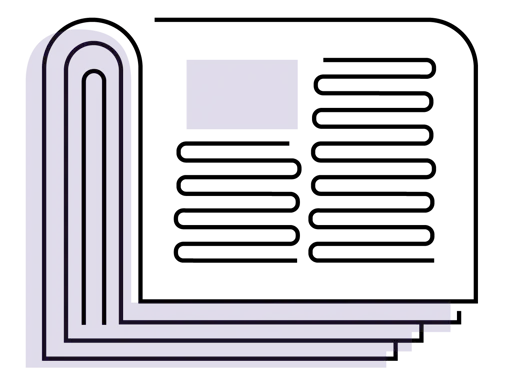The BMA junior doctors committee and GP registrars committee believe that, in response to the manufactured workforce shortage of nearly 10,000 doctors, the rapid expansion of medical associate professionals (MAPs), encompassing physician associates, anaesthesia associates, and surgical care practitioners, in both hospital and general practice settings, is detrimental to the provision of high-quality healthcare and represents a long-term risk to patient safety. MAPs are not medically trained, do not have a medical degree, and are not doctors. Without a clearly defined scope, the rapid expansion of MAPs also undermines the professional identity, knowledge, and skills of medical doctors, which itself poses another risk to patient safety. The BMA has called for the reversion of the name of the role ‘physician associate’ back to ‘physician assistant’, to reduce confusion for patients and better reflect their role within clinical teams.
MAPs work under the supervision of a named consultant doctor or GP doctor. However, postgraduate doctors are often asked to prescribe medications and request imaging involving ionising radiation on behalf of MAPs. MAPs are not qualified to independently determine whether a prescription only medication or ionising radiation is necessary. The BMA’s position is that no postgraduate doctor should automatically prescribe medications or request ionising radiation on behalf of a MAP. If there is an immediate patient safety concern, then this should prompt a doctor assessment anyway, which may lead to the doctor deciding to prescribe medications or request ionising radiation. If there is no immediate patient safety concern, then the request for a prescription or ionising radiation should ordinarily be sign-posted by the postgraduate doctor to the named consultant doctor or GP doctor supervising the PA, AA, or SCP.
We reiterate the current guidance as set out in the Gold Guide for Foundation and Specialty Training in the UK, which states that “educational and named clinical supervisors should hold a licence to practise and are required to be recognised and/or approved in line with GMC recognition and approval of trainers requirements”. As such, it is not appropriate for AHPs (allied healthcare professionals) or MAPs to formally supervise postgraduate doctors in training. For GP registrars in a practice setting, the BMA GP Registrars Committee's position is that MAPs should not provide supervision or debrief.
The education and training requirements of postgraduate doctors are also impacted by the advent of associate professions. MAPs often do not rotate posts or work night shifts, and so have a degree of permanence which allows stronger bonds to develop with their senior colleagues. Doctors can therefore be seen as a wasted investment and are frequently overlooked for vital training opportunities. This must stop. Doctors must be trained effectively. This means being prioritised for educational opportunities, even if that means rethinking rotational training. Failure to train the prospective consultants and GPs of the future appropriately will result in an under-skilled medical workforce, and risks public safety.
Prescribing guidance for junior doctors working with physician associates (PAs), anaesthesia associates (AAs), and surgical care practitioners (SCPs)
Can PAs, AAs, and SCPs prescribe?
In the vast majority of cases, PAs, AAs, and SCPs are not legally allowed to prescribe. PA, AA, and SCP qualifications alone do not entitle those working as a PA, AA, or SCP to prescribe. However, a small number of PAs, AAs and SCPs do prescribe, with the support of their employer, using a qualification obtained in another regulated healthcare profession such as nursing. The BMA currently opposes the granting of prescribing rights to PAs, AAs, and SCPs following regulation, as set out in its position statement.
What are doctors’ responsibilities when prescribing for patients?
The General Medical Council (GMC) sets out a doctor’s responsibilities with regards to prescribing in its ‘Good practice in prescribing and managing medicines and devices’ guidance. It states that as doctors ‘You must only prescribe drugs when you have adequate knowledge of your patient's health’. And that ‘You must be prepared to explain and justify your decisions and actions when prescribing, administering and managing medicines.’
Furthermore, the guidance notes that the ultimate responsibility for the patient and the potential consequences of any associated drug errors lies with the prescribing doctor – ‘You are responsible for the prescriptions you sign. You are also accountable for your decisions and actions when supplying or administering medicines and devices, and when authorising or instructing others to do so’.
What are the requirements for doctors prescribing for patients seen by PAs, AAs, or SCPs?
The GMC has issued advice for doctors who supervise PAs and AAs (see the above link) which provides that ‘If you prescribe based on the recommendation of a PA or an AA, you’ll be responsible for any prescription you sign. Be sure that the prescription is needed, appropriate for the patient and within the limits of your competence”.
The prescribing guidance also states that “If you delegate the assessment of a patient’s suitability for a medicine, you must be satisfied that the person you delegate to has the qualifications, experience, knowledge and skills to make the assessment’. It is the BMA’s position that PA, AA, and SCP’s qualifications do not provide them with the requisite knowledge or training to enable doctors to prescribe safely based on their assessments alone. Doctors should not prescribe based solely on the assessment of a PA, AA, or SCP.
What should I do if a PA or AA asks me to prescribe/request ionising radiation for them?
It is the position of the BMA’s junior doctors committee and GP registrars committee that no junior doctor should prescribe medications or ionising radiation solely at the request of a PA, AA, or SCP.
If there is an immediate patient safety concern, then this should prompt a doctor’s assessment which may lead to the doctor deciding to prescribe or request ionising radiation.
If there is no immediate patient safety concern, then the request for a prescription or ionising radiation should ordinarily be sign-posted by the junior doctor to the named consultant doctor or GP doctor supervising the PA, AA, or SCP.

